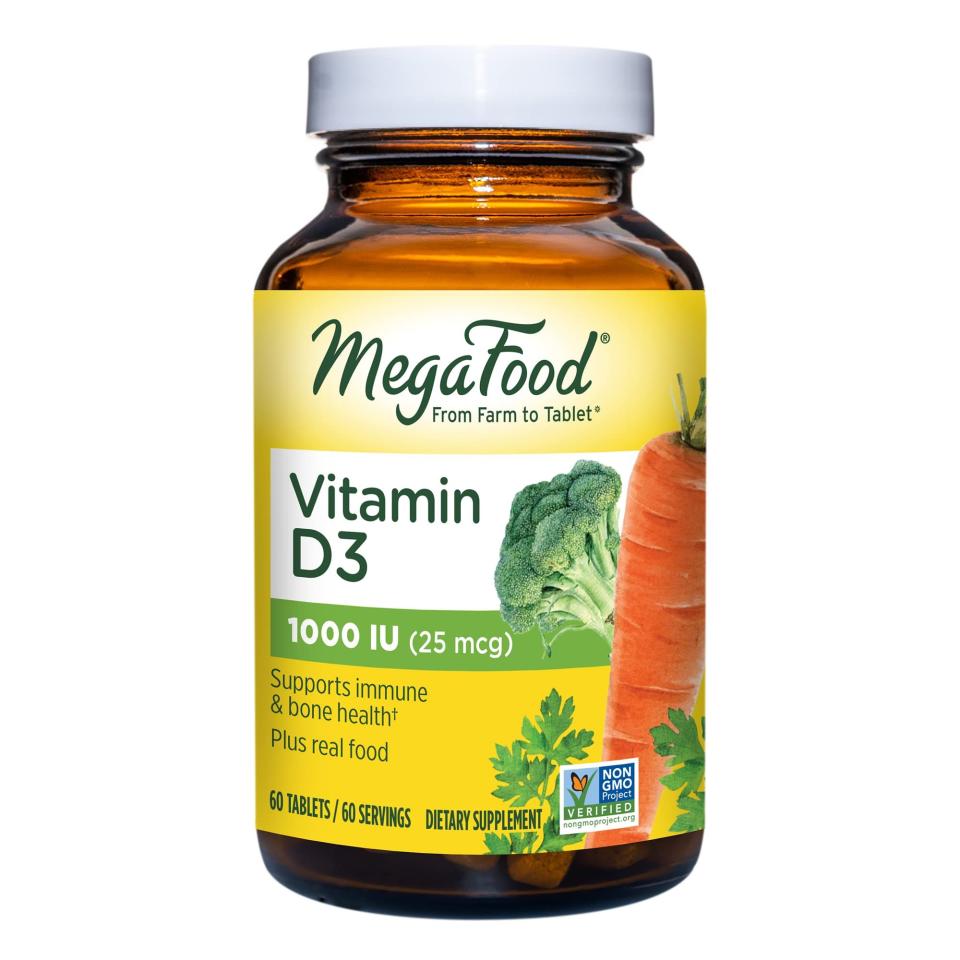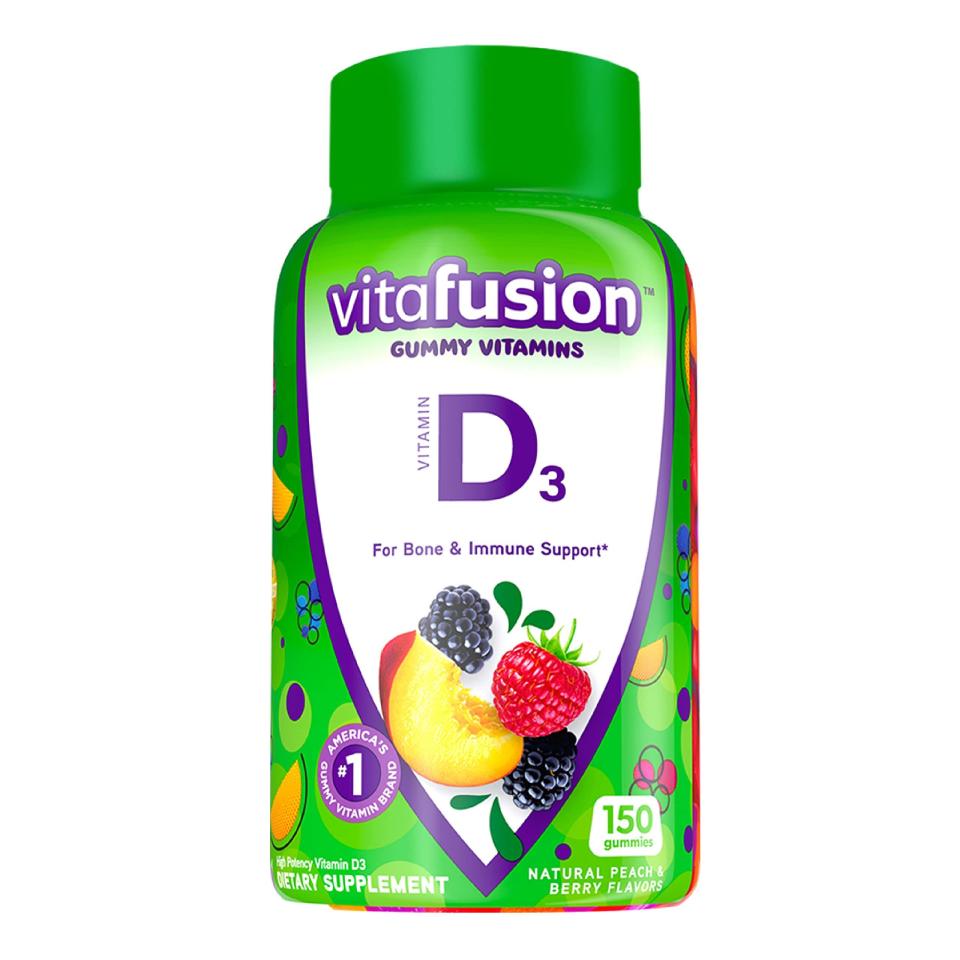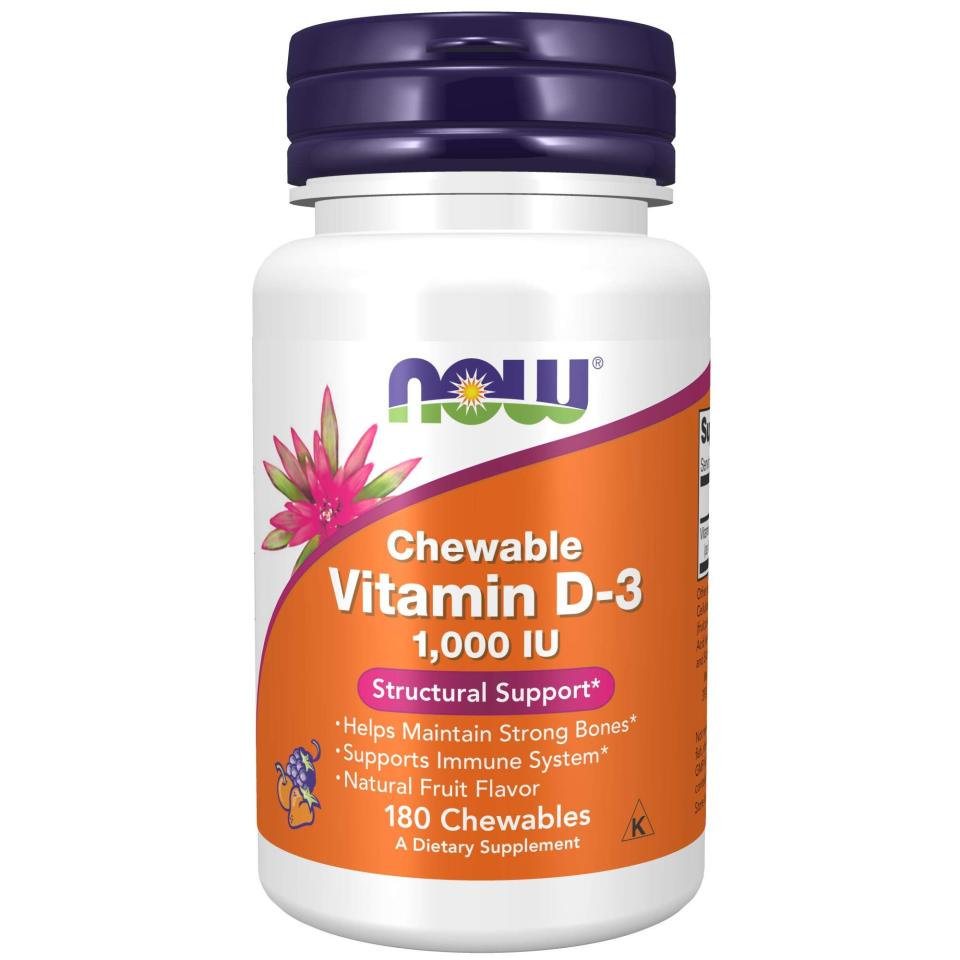Have You Been Taking Your Vitamin D the Right Way?

"Hearst Magazines and Yahoo may earn commission or revenue on some items through these links."
[table-of-contents] stripped
If you're going to shell out on an entire pill organizer's-worth of daily supplements, you probably want to know the best way and time of day to take all of them. After all, there's no point in spending money on a curated regimen of vitamins and minerals, only to miss out on their benefits by taking too little, or to end up peeing them out by taking too much.
So it's no surprise that people are curious about the best time to take probiotics, vitamins and other supplements, as well as how to take them to maximize the health-promoting powers we're after. Vitamin D is an important nutrient that's top of mind for many lately, and that's good news since most people in the United States don't consume enough of it, according to the National Institutes of Health (NIH). You can hike your levels of the sunshine vitamin by spending time in the sun (UV rays prompt your body to make its own vitamin D) and through consuming foods that contain it (such as salmon, eggs and some fortified dairy or cereal products).
But you can’t get all you need through food and sun exposure alone (especially because we all need to be protecting ourselves from the sun's damaging rays). So, it's “very reasonable” to take a supplement to be sure, says JoAnn Manson, M.D., MPH, DrPH, a Professor of Medicine at Harvard Medical School and chief of the Division of Preventive Medicine at Brigham and Women’s Hospital in Boston.
Our registered dietitians in the Good Housekeeping Institute Nutrition Lab review and evaluate every single supplement we recommend in accordance with our dietary supplement methodology. We then have a registered dietitian on our Medical Review Board review each article for scientific accuracy. A supplement should do just that: supplement the diet, not replace high-quality, nutritious food and important healthy lifestyle practices. Check with your healthcare provider before starting any dietary supplement regimen.
Vitamin D benefits
Vitamin D helps you absorb calcium, which helps to build and maintain strong bones, muscles and joints. In fact, the two — calcium and vitamin D — together can help protect you from osteoporosis, a disease that weakens your skeleton and makes bones more likely to break if you should fall, adds Carol Haggans, MS, RD, a spokesperson for the NIH Office of Dietary Supplements. Your muscles also need it to do their thing, as do your nerves, which carry messages between your brain and your body. Oh, and without vitamin D, your immune system would be less adept at fighting off bacteria and viruses.
How much vitamin D to take
Most of us — healthy adults between 19 and 70 — should try to consume 600-800 IUs, says Haggans (the recommended amounts are different for healthy people who are older or younger.)

But some folks require more than the suggested amount for their age group. Breastfeeding moms should take note: “It’s recommended to give breastfed infants a supplement, because breastmilk doesn’t provide infants with enough vitamin D,” says Haggans.
Others who may need more vitamin D that the recommended amounts:
People with conditions that limit fat absorption, such as Crohn’s disease, celiac disease or ulcerative colitis;
Older adults, whose bodies become less good at making vitamin D from sun exposure as they age;
Folks with dark skin (your body may make less vitamin D from the sun);
People carrying a lot of bodyweight or who have had gastric bypass surgery;
Those who wear a head covering, are meticulous about never exposing their skin, or simply don’t go out in the sun a lot.
People on a vegan diet. “If you don’t have any milk or fish, you’re cutting out two big sources of vitamin D,” says Haggans. “Look for fortified orange juice and breakfast cereals and check nutrition labels.”
It's also important to make sure you don't overdo it. “More is not better, and megadosing should be avoided,” says Dr. Manson. The upper limit per day for everyone over 9 years old is 4000 IUs, unless you’ve been screened by your doctor and have issues specific to you that they feel require a higher dose. Extremely high levels can cause symptoms like vomiting, muscle weakness, confusion and pain, among others, according to the NIH; extremely high levels can lead to kidney failure, irregular heartbeat and even death.
When Is the best time to take vitamin D — morning or night?
It just plain doesn’t matter, as long as you take it with food, says Dr. Manson. Her advice: Take it when you’ll remember to take it — morning, noon or night — and take it with a meal, she says. “It is important that it be taken with food, because vitamin D is a fat-soluble vitamin,” meaning it does not dissolve in water and is absorbed with fat, so it is better if there’s a little healthy fat to mix it up with, says Dr. Manson. “Often it will come in a soft gel with a little oil in it to help it absorb, but it’s still best to take it with food.”
The best vitamin D supplements
Both vitamin D2 and D3 are good, but “D3 has better bioavailablilty,” says Dr. Manson, meaning that it’s more easily used by your body.
But that doesn’t mean any old brand will do. Dietary supplements are not approved by the FDA prior to going to market, so we recommend that you do a bit of research or ask your doctor for a good brand. You’ll want to look for options that have been third-party tested for purity, potency and safety and can confirm that what is on the label is actually what is in the bottle — look for NSF or USP logos on the label.
Below, you'll find some picks that have been recommended by the experts in the Good Housekeeping Institute.
Vitamin D3

Vitamin D3
amazon.com
$20.99
Vitamin D3

Vitamin D3
amazon.com
$10.92
Vitamin D-3

Vitamin D-3
amazon.com
$7.33
..
You Might Also Like

